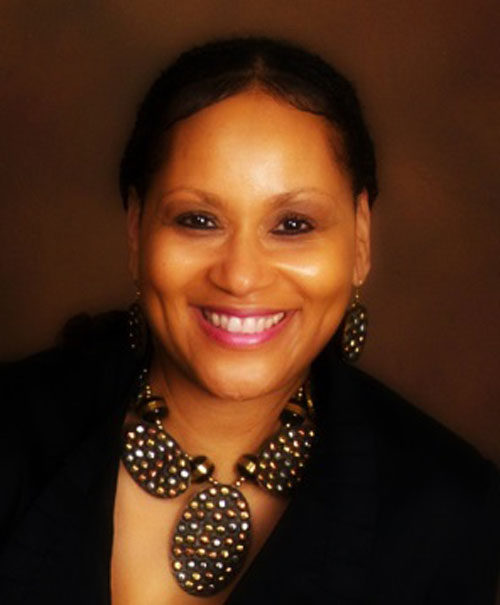FAYETTEVILLE, Ark. – A symposium sponsored by the University of Arkansas is intended to get educators and others thinking and talking about how to improve multicultural education and social justice in schools and society.
The 2013 Multiculturalism and Social Justice Symposium is planned for June 11 and 12 at GuestHouse International in Fayetteville, formerly the Clarion Inn. It will begin at 5 p.m. June 11 with a reception and continue at 7:30 a.m. June 12. The symposium will conclude at 3:15 p.m. following a community panel discussion focusing on members’ views of multiculturalism and social justice in Arkansas.
The community panel will be made up of Ana Aguayo, associate director of development for the Northwest Arkansas Workers’ Justice Center; Jessie Bryant, founder of the Fayetteville Free Clinic; Carmen Chong-Gum, Marshallese consul general for Northwest Arkansas; and Rosa Velazquez, Mid-South North representative on the National Coordinating Committee for United We Dream.
Teachers who attend will receive a certificate for 6 hours of professional development. Cost is $99 with a discounted price of $49 for students, and registration may be done online. Breakfast, lunch and snacks are included.
Creators of a newly formed organization on campus, the Arkansas chapter of the National Association of Multicultural Education, came up with the idea for the symposium, said Freddie Bowles, associate professor of foreign language education in the College of Education and Health Professions. The chapter was approved earlier this year at the annual meeting of the national organization in Philadelphia.
“The founding officers of the Arkansas chapter were interested in hosting a workshop to pull educators from Arkansas together for a discussion on multicultural education in Arkansas and their perceptions regarding social justice,” Bowles said. “Our goal is for the symposium to become an annual event. We hope that educators will come away from the conference with a working definition of social justice and its role in education.”
Angela Webster-Smith, an associate professor of leadership studies at the University of Central Arkansas, will be the keynote speaker. Her address is titled “Reflective Living: The Way to Courageously Step Out, Stumble, and Step Out Again for Thriving Classrooms, Meaningful Conversations, and Productive Communities.”
Webster-Smith said she will encourage the audience to practice “reflective living” for the purposes of continuous improvement in multiculturalism and social justice leadership.
“We need to look at all the different facets of ourselves and examine our thinking to see if we are truly expressing multiculturalism and social justice,” Webster-Smith said. “We are so often on autopilot, that’s the way our brains work. For cognitive efficiency, our brain hard-wires everything. Anything we do on a repetitive basis is transferred to autopilot and we don’t think about why we do it or why we think a certain way.”
Throughout its history, America has made great strides toward acceptance of many cultures and extending social justice to all, Webster-Smith said. What she terms reflective living is needed to take American society to the next level, she said.
Webster-Smith will lead exercises such as having participants consider a list of labels often applied to students. Labeling a student often prevents the teacher from connecting with that student in a way that is helpful, she said. When a teacher applies a label to the student and assumes the student is going to behave a certain way based on the label, a student can sense that and will react in a negative way, she explained. Although the student’s action is self-destructive because the student doesn’t get the help needed to succeed in school, the student may feel that’s the only way to preserve his or her dignity when a teacher is not accepting of him or her.
“Reflective thinking allows us to be proactive, too,” she said. “You can’t sit down and, in a day or two, examine all your beliefs, but over time such reflective thinking can become a natural practice. It will help us to become better teachers and better individuals. We really need to think about what we are going to say. Thoughts eventually become words.”
Webster-Smith is the author of In the Presence of a King, published last year. At age 7, she was present for slain civil rights leader Martin Luther King’s final speech. The book, designed for children in grades 3-8 but applicable to all ages, gives parents and educators ideas to help children identify their talents and abilities.
Participants will have the opportunity to talk with the speaker, panelists and each other to define and to explore how multiculturalism and social justice play an important role from classrooms to boardrooms in Arkansas.
Bowles and Charlene Johnson-Carter, associate professor of middle level education, will facilitate two workshops.
The department of curriculum and instruction in the College of Education and Health Professions is sponsoring the symposium, along with, the ESL Symposium, the School of Social Work in the J. William Fulbright College of Arts and Sciences, the Center for Multicultural and Diversity Education, and Sankofa, a registered student organization for the African and African American Studies program in Fulbright College.
Topics
Contacts
Freddie Bowles, associate professor of foreign language education
College of Education and Health Professions
479-575-3035,
Heidi Wells, content writer and strategist
Global Campus
479-879-8760,
